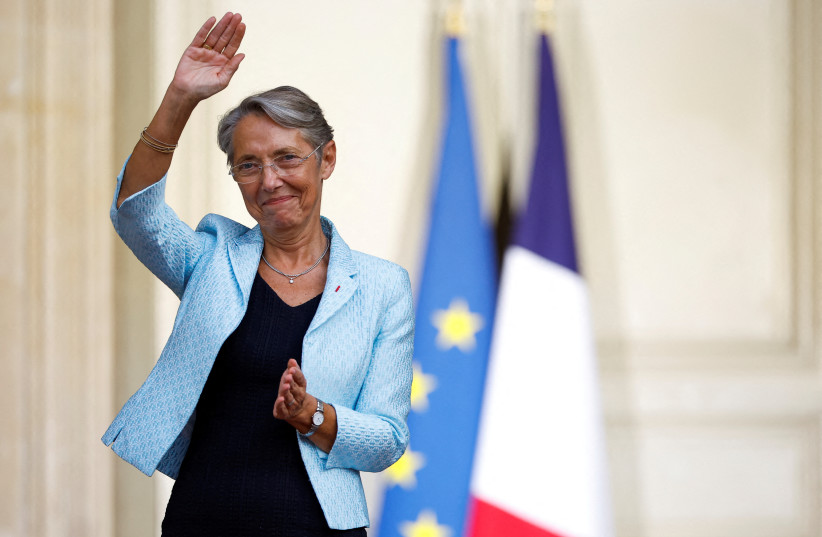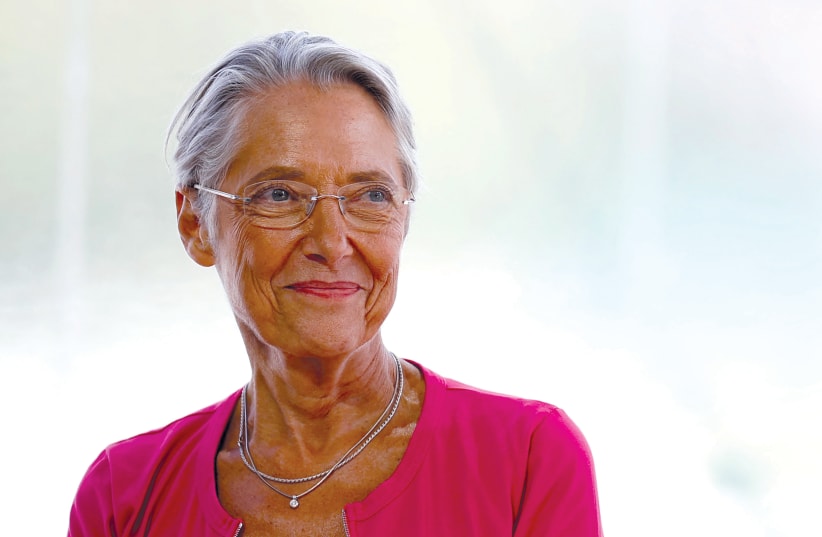Élisabeth Borne, the daughter of a Holocaust survivor, became prime minister of France in May 2022, becoming the second woman to hold that position.
She was appointed by President Emmanuel Macron, and local media have described her as surrounded by “political heavyweights.” Prior to her appointment, she was a technical adviser in 1991 to Lionel Jospin, and education minister in Édith Cresson’s government. She worked with mayor-to-be Anne Hidalgo between 2008 and 2013 as director-general of urban planning at Paris city hall. She was also the head of the cabinet of Ségolène Royale, who was then ecology minister.
Born in 1961 in Paris, Borne is a graduate of the College of Engineers, the National School of Bridges and Roads and École Polytechnique. She served as a civil servant, and then in a variety of positions. Her last three posts were transport minister, ecological and inclusive transition minister and then labor minister.

Élisabeth Borne's Jewish family past in the Holocaust
Borne’s father, Joseph Bornstein, and his three brothers - Isaac, Albert and Leon - were born to Polish-Jewish immigrants in Belgium. The family fled that country to France in 1940 when Germany invaded Western Europe.
Joseph was arrested by occupation forces and deported to Auschwitz as a teenager in 1943 along with his brother Isaac. Leon Bornstein was murdered at the Majdanek death camp in occupied Poland. Albert Bornstein, who was born in 1930, was murdered at Auschwitz.
Borne’s father became naturalized as a French citizen in 1950. He converted to Christianity after the war to marry Elisabeth Borne’s mother, Marguerite Lescène, according to Isaac’s testimony. He suffered from epilepsy and other medical problems but, Isaac Bornstein said, “I think he never got over Auschwitz.”
“It has not always been easy. I lost my father when I was very young, and so we ended up with my mother, who had two daughters and did not really have an income.”
Élisabeth Borne
Bornstein finally killed himself at the age of 48 when Élisabeth was just 11, and she has spoken about the difficulties of being raised by a single mother. “It has not always been easy. I lost my father when I was very young, and so we ended up with my mother, who had two daughters and did not really have an income.” She has described herself as the daughter of a stateless refugee and mentioned this in the context of French integration.
She also said that as a child she was attracted to science. “The story would be a bit too long to tell,” she said during a discussion with residents of Les Mureaux, a Paris suburb just a week after taking up her role. “But when your life journey is difficult, as mine was, and things happen in your personal life that aren’t very nice, there was something reassuring about sciences.”
In August, on the eve of a trip to southern France for vacation, the premier spoke to Le Monde about her hard work and her hopes for the country, characterized by the recent passage of a budget amendment bill: “We were concerned that we would not be able to secure a majority,” she said. “I put a lot of effort into examining how we could find a way forward. The French wanted us to show that we could work together, build compromises.”
In an interview with Journal du Dimanche, Borne was asked who she thought of when she was appointed prime minister.
“I thought of my father,” Borne replied.
